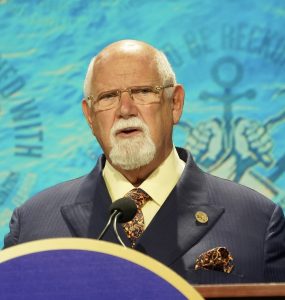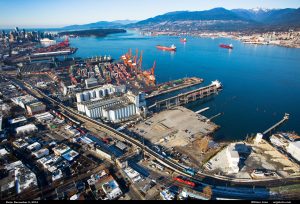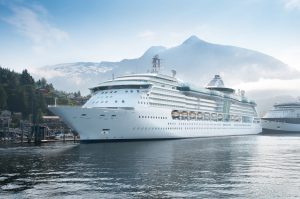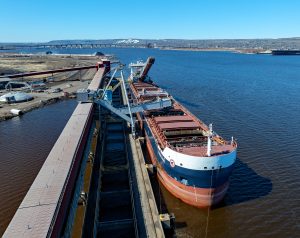The International Chamber of Shipping (ICS) Maritime Barometer Report 2022-2023 – published today – reveals that uncertainty over fuel availability and infrastructure puts at risk ambitions to meet decarbonisation targets, reinforcing the need for a clear plan of action to mitigate risk.
The inaugural ICS Maritime Barometer Report is the first full-scale annual survey of risk and confidence among maritime leaders. More than 130 C-suite decision makers, half of them shipowners and approximately 35% consisting of ship managers, have provided insight into the issues preoccupying them and how they are placed to manage their impact.
Respondents’ views on decarbonisation factors highlight a maturing of the shipping industry’s understanding of the complex implications of the energy transition. While the practical implications of new greenhouse gas reduction regulations have continued to be the biggest concern for two years in a row, respondents demonstrated evolving opinions on the fuel landscape. This includes a shift in attitudes towards wind and nuclear power as potential, viable energy sources.
The report also highlighted that delays in government decision-making will have far reaching consequences for the shipping industry. Key choices by governments regarding supply chain resilience and greenhouse gas reduction measures will determine how the industry evolves over the next decade.
Emanuele Grimaldi, Chairman of the International Chamber of Shipping, commented: “The need for clear direction from our regulators and political leaders shines through in the data gathered from maritime leaders around the world for this report. Delays in government decision-making will have far reaching consequences for the shipping industry as key choices regarding supply chain resilience, greenhouse gas (GHG) reduction measures (including carbon pricing, alternative fuel availability and the provision of new onshore bunkering infrastructure) will determine how the industry evolves over the next decade.
Political instability, financial instability and cyber-attacks were also among top risks identified in the ICS Maritime Barometer Report. As financial and political risk has risen, particularly due to the ongoing conflict in Ukraine, so too have concerns about companies’ capabilities in managing these issues. A key takeaway for this year is that although some risks hold the potential to have a serious impact on operations, maritime leaders have high confidence in the industry’s abilities to manage these situations.
Speaking at the launch of the report in Dubai, Stuart Neil, Director of Strategy and Communications said: “The report shows that there is increased maturity of the industry’s understanding of the implications of the energy transition on maritime. While the practical consequences of new GHG reduction regulations have continued to be the biggest concern for two years in a row, respondents are demonstrated an evolving understanding of the new fuel landscape.”
(Dreamstime photo)








